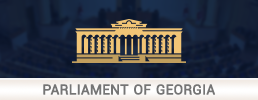2024-05-12
Greetings,
As you know, tomorrow and the day after the Parliament of Georgia plans to adopt the Law on Transparency of Foreign Influence in third hearing. The bill's committee hearing is scheduled for tomorrow, and the day after it will be adopted at the Parliament's plenary session.
Firstly, I emphasize that Georgia is a parliamentary democracy, and decisions in our country are made in line with the interests of the population's majority, not based on the demands of a political minority.
Surveys show that over 80% of Georgia's population support the transparency of NGOs, and over 60% are in favor of the Law on Transparency of Foreign Influence proper. Consequently, the Parliament of Georgia, tomorrow and the day after, will fulfil the will of Georgian society by ensuring the disclosure of the revenues and expenses of NGOs and relevant media outlets, in this way putting in place more solid guarantees for ensuring lasting peace, calmness, and stability in Georgia.
The country cannot live forever in a vicious cycle of so-called polarization pushed on Georgia artificially from the outside, with the nontransparent financing of NGOs and relevant media outlets playing a major role in it. Overcoming this so-called polarization, artificially forced on from the outside, i.e. putting an end to radicalism, is our responsibility to the Georgian people who have granted us the mandate to govern the country eight times already, and will do the same for the ninth time this coming October.
We have bulletproof information that violent youth groups organized by the radical opposition and financed from abroad intend to carry out violent acts against the Parliament and police forces of Georgia tomorrow and the day after.
I want to warn each member of the radical opposition's violent groups that everyone will be held accountable for violence to the fullest extent of the law.
I also want to ask law enforcers to exercise maximum patience and respond to violence and insults in line with high European standards.
Once again, I want to thank our law enforcers for meeting high American and European standards in their actions despite facing violence of such magnitude and absolutely unacceptable scale over the past few weeks.
Over the past few weeks, there have been a few incidents as exceptions that no one can like or accept. Georgia is a small country where people should be especially attentive to one another, the reason why the ruthless forms of responding to violent persons-these forms being common for American and French police forces-should not be acceptable to Georgian law enforcers. I also want to remind everyone that any incident will be used by the radical opposition to eclipse their own premeditated violence.
I want to warn each representative of the radical opposition, those plotting violence for tomorrow and the day after, that their crimes will not go unpunished, and they will be very unlikely to be pardoned by Salome Zurabishvili anymore.
Since the 1990s, Georgia and Georgian society have prided themselves on their culture of peaceful protest. The collective National Movement, this violent political group-with violence alongside deception as its key pillar during its rule in 2004-2012-is now trying to obliterate this mark of Georgian culture too and introduce the so-called culture of violent protest. If heartfelt prayer and song were the main features of dissident or Georgian Dream rallies, now the Molotov cocktail and stone-hurling are the key characteristics of the radical opposition's demonstrations.
Brought to power by external forces through violence and stone-hurling in the past, the National Movement-with violence against peaceful demonstrators as one of its key features while at the helm-is now exercising violence from the ranks of the opposition. Needless to say, the state cannot and will not allow the collective National Movement and its foreign partners to replace the Georgian culture of peaceful protest with a non-Georgian uncultured form of violent protest.
This violence and absence of culture-once exhibited by the UNM both while still in power and now as an opposition-is absolutely alien to Georgian culture, and its introduction in Georgia links to the black money that the radical opposition and their friends abroad are so frantically fighting to hide.
Today, the Georgian state is as sovereign as ever, and this sovereignty will grow even stronger, and so will Georgia's rule of justice and law. Consequently, I once again promise everyone that everyone will be held accountable to the fullest extent of the law for assaulting the state, state institutions, and police officers.
In conclusion, I once again thank our law enforcers for protecting state interests and public order, and I ask them to be maximally patient in their response to violence and insults from demonstrators.
Elita Andghuladze, Rustavi 2: Naturally, my question is about the Law on Transparency and O'Brien's visit to Georgia tomorrow. We have repeatedly heard statements from the Assistant Secretary of the Department of State. He says that what is happening in Georgia is concerning, also mentioning sanctions. What should we expect from the Assistant Secretary's visit? Can sanctions be enforced, i.e. what he says, can it become a reality?
Prime Minister: My answer is very simple. Talks about sanctions are not serious by any stretch. Thank you.
Nika Sajaia, Formula: Mister Kobakhidze, you mentioned a survey. Who conducted it and when? Where does information about a minority protesting the adoption of the Russian law come from? You saw the numbers of people taking to the streets yesterday. Quite a multitude protested and yet you say that you have bulletproof information about expected violent actions, so the relevant agencies have been informed. What do you do to prevent possible violent behavior?
Prime Minister: The Interior Ministry will do everything to prevent violence, though it cannot be ruled out with all assuredness. If any violence is planned, the relevant radical forces will do everything to carry it out. Importantly, the Interior Ministry must act in this case too in line with standards higher than American and European, not just American and European, and this is the signature style of our current Government and our law enforcement agencies in particular, something that sets today's Interior Ministry apart from the actions of Merabishvili and Gakharia, for example. This standard will be surely upheld by the Interior Ministry, and everything will be done for prevention.
As for majority-minority, we conducted a survey carried out by one of the competent organization that I will not name here, though you can guess with whom we may be working. It is an organization with one of the highest qualified teams. Over 80% support the transparency of NGO activities. In response to the direct question about the law, 61% exactly answered in favor, so we all see where public support lies.
As for rallies, let me remind you that our rally featured a few times more people than the same rally yesterday, which also speaks to the ratio. Thus, one can say with all assuredness that we must follow the will of the majority of the public, especially since it is a rational decision. And it must be reflected in the act to be issued by the Parliament.
Elita Andghuladze, Rustavi 2: Mister Prime Minister, I will return to my question. What do we expect from the visit by the Assistant Secretary of the US Department of State? Do you expect them to sanction a concrete person in Georgia?
Prime Minister: I already gave you a brief answer. If you insist, though, I can give you a more detailed answer. I repeat that sanctions are not a serious topic, and one cannot use these threats to blackmail the authorities and, especially, Georgian society. Georgian society has gone through so much over the past 30 years that it is absolutely impossible to blackmail it. As for the authorities, we have an excellent example from our party's Honorary Chairman and Founder, Mister Bidzina Ivanishvili, who entrusted the West with 2 billion USD that was subsequently frozen, i.e. de-facto sanctioned. Naturally, however, these sanctions have had no impact on his decisions. When it comes to the interests of the country and the state, no blackmail can force us to back down. You know Georgian history. For 3,000 years, people have been sacrificing their lives for the country's independence and sovereignty, and when in moments like these someone is trying to use blackmail to have an impact on decisions, it will have no effect, of course. They probably do not know what Georgians are about, and Georgian character must seem different from afar.
Elita Andghuladze, Rustavi 2: What do you expect from this visit in general?
Prime Minister: I hope that we will discuss Georgia and the US drawing closer-drawing closer as opposed to being separated artificially. You know what we urge our American partners to do. It is visa liberalization for our citizens and the signing of an FTA. We hope that these topics will be discussed during this visit. This will of course draw our countries closer. If we are talking about strategic partnership, then this is the type of drawing closer-meaning direct flights, free trade, visa liberalization-that should be on the table. This will be the right attitude toward the Georgian people, and I hope this is the kind of messages that Mister O'Brien is bringing to Georgia.
Nika Sajaia, Formula: In light of the current situation, is the US our strategic partner today?
Prime Minister: That is not what I am saying. Strategic partnership must be expressed in concrete effective steps. One such step would be visa liberalization, or support for direct flights, or the signing of an FTA, in relation to which we already have enthusiasm and calls, but no response, which is very unfortunate. Strategic partnership must be expressed in concrete actions, though in so many years there have been no talks about visa liberalization or direct flights, and that contradicts the nature of strategic partnership.
Nika Sajaia, Formula: The US and many European countries have helped us repeatedly, and numerous projects have been carried out, including through bilateral partnership, and you would agree to this because this has happened under the current government as well in various directions. You are talking about visa liberalization, which is important, and we have seen the same good for Georgian citizens traveling to European countries, but there are talks about its possible cessation, and in fact every partner country is criticizing the Government because of this law. Is it worth putting it all at stake and ruining relationships, to say the least?
Prime Minister: Two days ago, your colleague pointed out on TV that if visa liberalization is called off-and this is not a serious topic either-it will serve Russia's interests. You be the judge: why would the EU make a decision serving Russia's interests? You see what kind of absurdity we are discussing now. I think that, hypothetically, if someone speaks to someone about anything, someone may blackmail us with personal sanctions, but it is not serious even to a greater degree to say that someone may threaten the Georgian people and deny them visa liberalization. It is not serious to talk about personal sanctions, more so-even 10 times less serious-to discuss blackmailing the Georgian people. I think we should better discuss serious topics.
Davit Kobidze, Mtavari Arkhi: Mister Kobakhidze, you say that all violent actions, about which you are informed, are expected to come from the upcoming protest rally's participants, and these acts will be punished severely. What about the violence against citizens as coming from the Interior Ministry's representatives? Has an investigation started? Why these persons have yet to be identified? As far as I know, they have not been identified, and no statement about it has been made by state structures.
Prime Minister: Unlike the opposition, we do not have double standards. You see constantly that, in relation to violence, our opponents, the radical opposition with its NGOs and TV stations is always exhibiting double standards in its actions and also often commends violence. They not only fail to condemn it-like violence against their colleagues, journalists, MPs, and so on-but, on the contrary, commend such facts of violence. Unlike our opponents, we do not have double standards. We have single standards, which means that we condemn violence in every direction, and we will respond to it. As for launching an investigation, it takes some time, though everyone will see that we will follow this investigation process through.
Davit Kobidze, Mtavari Arkhi: One more question about the law. As we know, the President will veto it, then there will probably be motivated comments, and the authorities will likely wait for the Venice Commission's report. Will the authorities take into account comments most likely to come from the Venice Commission?
Prime Minister: We all know that the President does not write her own vetoes. They are written by NGOs or someone on the outside, which is the same thing. What is important to us is to negotiate with those who will write a veto for Salome Zurabishvili, and we have already discussed this. I personally have had conversations with representatives of the EU and OSCE about our being absolutely open for discussion as long as long as they have concrete substantiated legal comments concerning the bill. We are absolutely open to discussion. You know that, so far, they have not produced a single legal comment. But now I hope that it is time. If there are concrete legal comments, discussions will start, of course, and we are ready to reflect these matters in the bill together.
Nika Sajaia, Formula: Citizens claim to be receiving phone calls from abroad, with persons so far unidentified verbally abusing them and often threatening them. We have also seen so-called ambushes, physical assaults, and so on near the residences of concrete individuals. Are you interested in this regard, and have you instructed the Interior Ministry to investigate these cases as fast and objectively as possible? Who in reality is behind all this, and will these people be punished?
Prime Minister: We have discussed all these matters with law enforcement structures, and response will be given concerning each issue and fact, be it violence or intimidation. Everything is being done operatively, though it takes time to get to the bottom of it. Last year, for example, nearly the whole city was burned down, and numerous facts of violence were recorded. Cars and buses were torched, and the Parliament was nearly burned down. Much damage was inflicted, including property damage, on the state. And just one person was arrested despite all this violence. Of course, investigation follows its own standard, so it will take time to clarify every fact. Everything will be investigated swiftly.
Nika Sajaia, Formula: How about police not responding to calls?
Prime Minister: There was some information in relation to TV Pirveli, but in reality there was no violence at all. I do not know what kind of spectacle was staged there. Generally, Nodar Meladze is into staging spectacles. But it is a fact that there was no violence.
Nini Maisuradze, Imedi: I want to ask you about the videos disseminated by the Prosecutor's Office in relation to one of the active participants of the rallies, Ucha Abashidze, and his spouse. What is your take on all this? The opposition claims that the disseminated video materials are fake.
Prime Minister: We are witnessing something unimaginable, and I can tell you that only UNM members are capable of such alleged crimes. This level of perversion is unimaginable. We are talking about a type of crime that links directly to the highest degree of perversion. You remember this kind of perversion from this political party. These people kept barrels full of thousands of CDs reflecting people's personal lives. This alleged crime, which is present in this case, repeats the signature style characteristic of the National Movement. Thus, it is not surprising that this concrete alleged perpetrator, Ucha Abashidze, is one of the active supporters of the collective National Movement. He has been an active participant of the rallies' organization, which makes perfect sense. The rest is up to investigation. In reality, however, based on the information that I have, we are talking about such volume of video recordings that falsifying it is not even up for discussion. It is an unimaginable scope of perversion. As for the crime proper, it will be identified in line with the relevant rule by law enforcement structures. But this case reiterates that the National Movement and perversion are identical notions.
Keso Kapianidze, Public Broadcaster: Mister Kobakhidze, you told media outlets a few days ago that a meeting with partners left you with an impression that there is readiness to hold discussions. You also said that the veto procedure may be used to this end. What exactly did you mean by that? For example, did you mean that the bill may be amended? The opposition does not consider any discussions, and their only demand is its withdrawal. Discussions with whom did you mean? And what in particular may change?
Prime Minister: We mean discussions with foreign partners. I had conversations with the EU and OSCE, so we are ready for discussions with them. As for the opposition, it is absolutely understandable that they are scared to hold discussions just as they were scared in the past. Because, in reality, even a single correction in relation to this law is impossible. When a law envisages just one thing-meaning NGOs filing declarations once a year-I cannot imagine, even theoretically, what correction may be put forward here. This is why they are ultimately avoiding talks about this same veto issue, for example. For our part, there is an absolutely constructive attitude present, and this initiative also reflects it. I am thankful for having heard for the first time about readiness from foreign partners to hold discussions. We will see about the rest. We will hold an absolutely constructive attitude. It is not surprising at all that the opposition has this destructive attitude, because it is simply impossible to offer any legal corrections concerning this bill.
Keso Kapianidze, Public Broadcaster: What is your main argument, what makes you believe that you can convince the opposition or international partners?
Prime Minister: The main argument is that the law is good. If someone can name something else, it is fine, but the law envisages just one thing, that these organizations should once a year file declarations. The rest consists of technical norms, including what the Justice Ministry does, and then what sanctions may apply. In essence, it is a technical appendix to the main regulation. And the only regulation is that declarations should be filed once a year, which is a minimal standard of transparency. This is a minimal European standard that NGOs must meet. Thus, no legal corrections can be offered against this bill, and this is related directly to the opposition's destructive behavior.
Nika Sajaia, Formula: You spoke about unidentified external forces and processes run from there. Over the past few years, we have heard repeatedly that there is this so-called war party. Who are they, what countries, or what party, whom exactly do you mean? Who are Georgia's enemies in your opinion?
Prime Minister: To put it bluntly, we are not talking about a country. And we do not mean the EU or the US. On the contrary, the EU is one of the victims of these forces. Some 16 years ago, its economy was 16.3 trillion, but now it is 17.3 trillion, and that against the backdrop of inflation. This means that the EU's economy has suffered a qualitative setback over the past 16 years, while before that they, for 5-6 years, had a double growth, from 7 trillion to over 16 trillion, but then it practically remained the same. The nominal economy grew just by 1 trillion, which means that, with inflation extracted, it leaves with the real economy taking a downturn. Consequently, the EU is the main victim of these forces. And who these forces are, this is known to many. We cannot name them. It is such a delicate matter that publicly discussing it may create problems for our national security. And we cannot-under any circumstances-jeopardize our national security, though very concrete forces are meant here.












